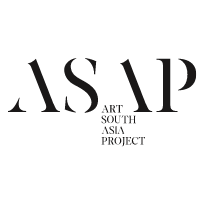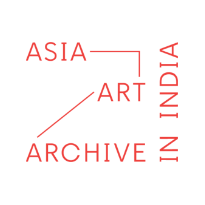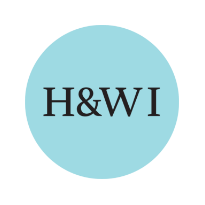ASSEMBLING ART ARCHIVES: WORKSHOPS FOR SOUTH ASIA
Art South Asia Project (ASAP) is partnering with Asia Art Archive in India (AAAI) to host Assembling Art Archives: Workshops for South Asia, a 10-month online programme dedicated to archiving modern and contemporary art from South Asia. This initiative, the first of its kind in the region, aims to foster learning, collaboration, and knowledge exchange on archival methodologies, frameworks, and infrastructural techniques. Sessions will be led by archivists working across diverse institutional contexts in the Global South and beyond.
This workshop stems from the burgeoning interest towards the building of archives, by individuals, collectives, arts organisations, and artist estates working broadly within the field of modern and contemporary visual art from South Asia. When reflecting back on Mughal history, archiving achievements were not only through written and visual documentation, but surrounded itself through the arts and cultural landscape of the period. This is how we as South Asians have developed to define our history and our identities. With this context in mind, “Assembling Art Archives” seeks to explore the manifold possibilities involved in archiving diverse collections, while acknowledging that there are issues pertaining to constrained resources and infrastructures that pose challenges. The workshop seeks to tackle these and other issues collectively as various individuals and institutions work towards building their own archives
The workshop hopes to enable participants to develop a conceptual frame for the building of archives, alongside developing technical skills pertaining to the information architecture of archives. It directs participants to think critically of the archive as a system for collating, organising, and presenting diverse materials, with a focus on those engaging with the holdings of arts institutions and/or artist estates. The workshop will also encourage participants to think through the question of accessibility, and its central role in determining the forms, infrastructures, potential use, and creative reinterpretations of the archives, and how we may navigate these terrains
“This programme fosters collaboration and knowledge exchange across diverse archiving practices and will play a crucial role in shaping the future of art archives in South Asia,” says the ASAP and AAAI team. “By connecting archivists and participants from the region and beyond, Assembling Art Archives will help to build a network of professionals committed to advancing archival processes in the arts.”
Assembling Art Archives has been made possible with a grant from Hauser & Wirth Institute
Assembling Art Archives: Workshops for South Asia Selected Participants
Teams ASAP and AAA-I hosted an Open Call in April 2025 and selected 20 participants from Bangladesh, India, Nepal, Pakistan, and Sri Lanka. The chosen arts professionals are engaged in archiving within arts organisations, artist estates and studios, and independent arts spaces. A list of the participants complete with their biographies can be found below. The online workshops will be commencing in August 2025 and will be complemented by an in-person gathering in Nepal in November 2025. These interactions will provide a unique opportunity for participants to connect and deepen their engagement with archival practices.
Selected Participants
-
Bhakti Hattarki, Shanu Lahiri Archives (India)
-
Bishal Yonjan, Kalā Kulo (Nepal)
-
Chakshita Rana, RN Joshi Museum, Park Gallery (Nepal)
-
Chinar Shah, Home Sweet Home Studio (India)
-
Dr. Sampurna Chakraborty, Benode Behari Mukherjee Archives (India)
-
Johann Pieris, Sapumal Foundation (Sri Lanka)
-
Maithili Bavkar, Sher-Gil Sundaram Arts Foundation (India)
-
Mariya Shaikh, Institute of Art and Design, University of Sindh Jamshoro (Pakistan)
-
Nimaya Harris, Museum of Modern and Contemporary Art Sri Lanka (Sri Lanka)
-
Ritwika Misra, India Foundation for the Arts (India)
-
Sadya Mizan, Uronto Artist Community (Bangladesh)
-
Saiyad Saif Ali, Kala Kendra (Bangladesh)
-
Saloni Bhojani, Ark Foundation for Arts (India)
-
Seher Naveed, Indus Valley School of Art and Architecture (Pakistan)
-
Shaheen Jaffrani, The Citizens Archive of Pakistan (CAP) (Pakistan)
-
Sharmila Sagara, Piraji Sagara Art Foundation (India)
-
Shikhar Bhattarai, photo.circle/Nepal Picture Library (Nepal)
-
Sonya Sarki, National College of Arts Archive (NCAA) (Pakistan)
-
Sophia Sansoni, Barbara Sansoni Archive (Sri Lanka)
-
Swilin Haque, Samdani Art Foundation (Bangladesh)
To learn more about the participants, refer to the document below
TIMELINE
Tuesday, 1 April 2025
Open Call LaunchThursday, 17 April 2025
Art Murmur Introduction to Assembling Art ArchivesFriday, 30 May 2025
Open Call EndsJune 2025
Reviewing ApplicationsMid-July 2025
Confirmation of Selected ParticipantsAugust 2025–May 2026
Assembling Art Archives WorkshopNovember 2025
Assembling Art Archives In-Person Workshop in Nepal
PARTNER ORGANISATIONS

Art South Asia Project (ASAP) is a UK-based arts education and development non-profit established in 2021. Its mission is to facilitate and expand networks of collaboration and research, documenting and highlighting narratives and histories of modern and contemporary South Asian visual and applied arts. It supports initiatives through grants and by creating opportunities for engagement, partnering with individuals and institutions within South Asia and the UK. ASAP creates programmes around research, archiving, and publications, and fosters professional development through workshops, talks, symposia, and fellowships.
Website

Asia Art Archive in India (AAA-I) is an independent registered Public Charitable Trust established in 2013 in New Delhi, with the goal of building resources for research on the region’s dynamic contemporary art scene. It accomplishes this mission by digitising artist and scholarly archives, developing research projects, and organising programmes. AAA-I’s digitised research collections can be accessed from its space in New Delhi, which has been open to the public since 2016.
Website
